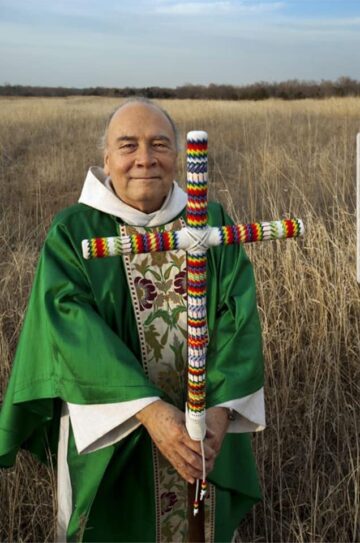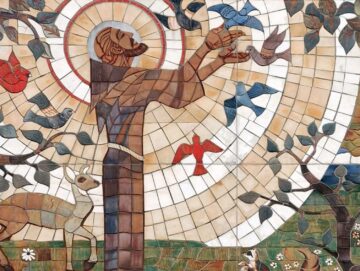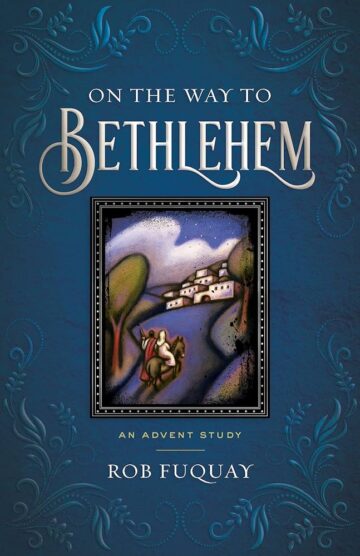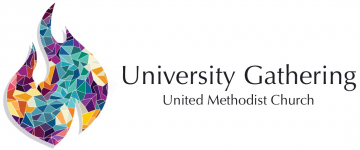News
Groaning for Justice

Kindred in Christ,
Up until now in our series All Creation Sings, we’ve celebrated how worship connects us with all creatures and the earth itself—a chorus of praise, gratitude, and wonder. This Sunday, we turn to a different song: the song of groaning. It is the song of longing, of protest, of insistence that what is broken be made whole. Creation groans. Humanity groans. And the Spirit groans with us, moving through our pain toward new life and justice.
This focus is especially timely, as our nation prepares for its second wave of No Kings Mass protests this weekend—a vivid reminder that standing up for justice, even when the world seems indifferent, is part of the work God calls us to.
Paul tells us in Romans 8 that all creation waits with bated breath, straining toward freedom, groaning with labor pains for the day of God’s restoration. John Wesley also reflected on this reality in his sermon The General Deliverance, teaching that God’s grace is not limited to human hearts but flows through all living creatures, renewing and restoring the earth itself. For Wesley, groaning is sacred labor—a song of hope rising out of pain.
In our Gospel, Luke 18, Jesus lifts up the widow who refuses to be silent in the face of injustice. Her persistence—her groaning for justice—softens even the hardest hearts. She reminds us that groaning is never passive; it is action, it is hope, it is insistence. The Spirit groans with creation and with us, guiding our prayers, our protests, and our persistence toward new life and justice.
Join us this Sunday to hear the songs of creation, to enter into the groaning of the Spirit, and to discover how our own persistence—our own groaning for justice and new life—is part of the cosmic labor of God. Even in sighs and cries, God is at work, weaving life, hope, and renewal into the world.
Alongside you,
Pastor Paul
The Kinship of All Life

Rev. Steven Charleston Episcopal Bishop,
Academic and Member of the Choctaw Nation
Kindred in Christ,
As we approach Indigenous Peoples Day, this Sunday we continue our worship series All Creation Sings, celebrating the sacred kinship that connects us to each other and to all of creation.
Psalm 148 calls on the heavens and the earth, sun and moon, mountains and trees, and even the creatures of the wild to praise the Lord. All creation sings! In our Gospel reading, Jesus heals ten men, yet only one returns to give thanks. Gratitude opens the heart—not just to God, but to one another, and even to those we might consider outsiders.
Together we will reflect on some words shared by Bishop Steven Charleston, a Choctaw elder and Episcopal Bishop, who reminds us:
“There seems to be a growing understanding of the kinship of all life, which, as you know, Indigenous people have long understood.”
By listening to Indigenous wisdom, we discover new dimensions of God’s presence, the meaning of kinship, and the sacredness of all creation.
Join us this Sunday as we return in gratitude, open our hearts to kinship, and join all creation in praising our Creator.
Alongside you,
Pastor Paul Ortiz
All Creation Sings

Mosaic-St Francis Praises the Creation at the University of Lourdes
Kindred in Christ,
This Sunday we begin a new worship series called All Creation Sings. Inspired by Saint Francis of Assisi, who taught us to see the sun, moon, and all creatures as our siblings, and by John Wesley, who spoke of creation as a living witness to God’s glory, we’ll explore an eco-spirituality that draws us into connection with all things. Wesley believed that the “book of nature” speaks alongside Scripture, revealing God’s wisdom and love through every part of the created world. Together, we are invited to rediscover creation not as scenery but as kin—woven into God’s song of life.
It is also World Communion Sunday, a day when Christians across the globe gather at Christ’s table. In sharing bread and cup, we remember that God’s love knows no borders or barriers. Following the vision of Francis and Wesley, we can imagine that the whole creation is gathered here with us—human and more-than-human neighbors alike—called into God’s circle of grace. Communion is not only solidarity across nations and languages, but also a reminder of our deep kinship with the earth itself.
After worship, we’ll continue in fellowship with a potluck lunch, and then lace up our walking shoes for the CROP Hunger Walk around Green Lake (see more information below). This walk is more than exercise—it’s a way of putting our faith into action by raising funds to end hunger, both in our own community and around the world.
Come ready to worship, to share a meal, and to walk together in hope and love. I’m looking forward to being with you as we begin this season of All Creation Sings.
Alongside you,
Pastor Paul Ortiz
Advent Study Group 2025

Advent Study Group 2025
When: Thursdays at 7:00pm via Zoom
Dates: November 6 (in-person optional), November 20, December 4, December 11, and December 18
Led by: Nancy Goddard
This Advent, you are invited to join a 5-session study group exploring On the Way to Bethlehem: An Advent Study by United Methodist Pastor Rob Fuquay.
About the Study
Fuquay’s book invites us to walk alongside Mary, Joseph, and others on the journey to Jesus’ birth. Together, we will explore the geographical and political realities of the time—what it meant to live under Roman occupation, how ordinary people encountered God’s promises, and how the journey to Bethlehem was as much about hope and faith as it was about place and power.
As we follow this story, we’ll reflect on how Advent is not only about preparing our hearts for Christ’s birth, but also about preparing the world for Christ’s justice and peace. We’ll ask: What does it mean to live as disciples who carry the light of Bethlehem into today’s struggles and longings?
Click HERE to watch promo video.
Gathering Format
- Zoom Sessions: All sessions will meet via Zoom at 7:00pm.
Sign Up
To sign up email Nancy Goddard at bngoddard@davespc.net
God is our Refuge(e)

Kindred in Christ,
When I was a kid, one of my favorite things to do was build a fort out of chairs and a blanket. I’d turn off the lights, crawl inside with a flashlight, and read my comic books. Looking back, I know those forts didn’t provide much security—anyone could pull the blanket away—but inside, they felt like a little oasis. A place where the disappointments of school or the uncertainties of family life seemed lighter.
Maybe you had a hideout too—a treehouse, under the bed, or your own makeshift fort. None of these spaces were truly secure, yet they gave us something deeply human: a sense of refuge.
As an adult, I’ve seen how that same longing for refuge shows up in starker ways. Many of our unhoused neighbors live in tents, makeshift shelters, or camps tucked under bridges or behind buildings. A few tarps stretched over poles may not keep out all the wind or rain, but they create enough shelter to survive another night. Like our childhood forts, these fragile spaces reveal a deep human desire for safety, protection, and dignity.
Our Scriptures this week speak into that longing. Psalm 91 declares, “God is our refuge and fortress.” Yet in Luke’s Gospel we meet Lazarus, a poor man who longed for safety at the gate of a wealthy neighbor and found none. Together, these readings show us that God is not only our refuge, but also found in those who seek refuge—the neighbor at the gate, the unhoused, the refugee.
This Sunday we conclude our Costly Grace series, remembering Bonhoeffer’s witness that grace must cost us something for the sake of others. We’ll reflect on what it means to take shelter in God, and what it means to embody that refuge for those who cry out for safety today.
So we invite you to come, bring your questions, your longings, and your hopes. Come and be renewed in the One who is our refuge—and who sends us out to be a refuge for others. Together we will pray, sing, and imagine what God’s costly grace looks like in our lives and in our city.
Alongside you,
Pastor Paul Ortiz
